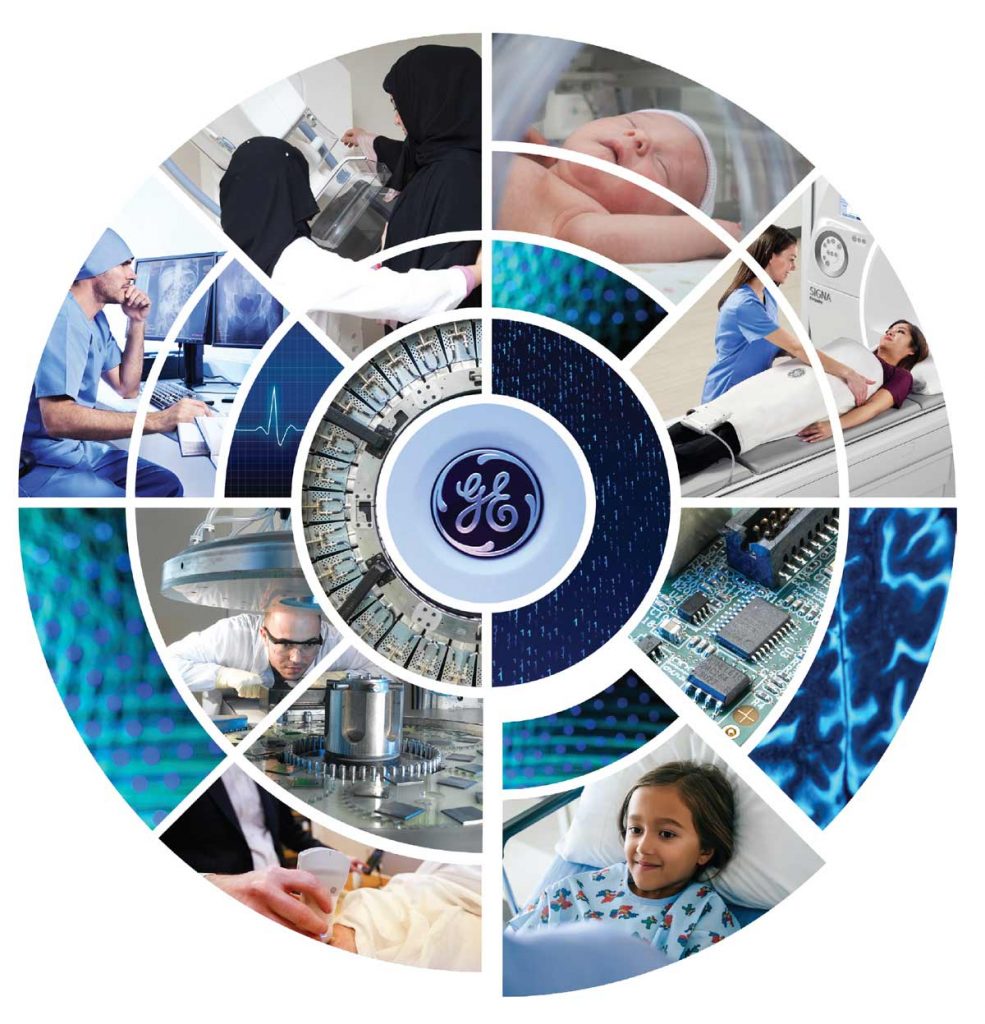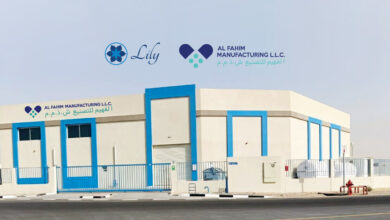The Future of Healthcare in the Middle East Is About Data and AI … and Partnership
By Mark Stoesz, General Manager Imaging, Emerging Markets at GE Healthcare

In the healthcare sector, approximately 5% of the data that is generated by imaging equipment, patient records and other medical information is used to improve patient diagnosis, care and outcomes. The other 95% is wasted.
What’s more, every 73 days, the volume of this data close to doubles.
Meanwhile, in the wake of the COVID-19 pandemic, hospitals and health ministries across the Middle East and North Africa – much like the rest of the world – are facing a host of challenges: cost pressures, staffing shortages, and rising patient loads caused by postponed care and long-term trends related to rising populations and an increasing burden of disease.
In response, hospital groups, clinics and health ministries are looking for ways to operate more efficiently, to better manage patient volumes, and to continue delivering high-quality, patient-centric care.
Digital, remote solutions and AI are crucial in addressing these challenges, largely by helping improve or speed the way administrators, technologists, doctors and nurses do their work, ultimately allowing doctors and nurses to spend more time directly caring for patients.
The pandemic helped speed the adoption of many of these solutions. Telehealth consultations allow physicians to see more patients, even patients living or working in far-flung areas. Across the region, GE Healthcare engineers have delivered remote preventative maintenance to help keep machines running to the highest standards – in part by saving the time that would have been spent getting a technician to the facility.
Additionally, through GE’s Digital Expert remote training can be provided to ensure hospitals and clinics have staff trained to operate advanced imaging equipment and make use of the latest updates and enhancements.
In cases where advance trained technologists are not available, remote clinical support ensures complex imaging scans can still be given. Particularly in countries such as Iraq and Syria where access into the market can be a challenge, GE Healthcare experts have guided the technologists to perform advanced procedures to help capture precise images that are crucial to helping diagnose and treat patients.
AI improves positioning and imaging
In the field of AI, GE Healthcare is leveraging Edison AI and analytics to create powerful solutions that help improve operations and patient care. For example, AI is helping optimize patient setup for all types of imaging scans, so sessions take less time and patients are exposed to less radiation, when it comes to X-Ray, MR and CT scans.
As well, AI is helping improve the signal to noise ratio in images to make them more clear. This helps technologists and doctors review and assess images more easily, helping them make assessments faster and process more scans. These improvements in care are crucial, given health trends in the region, where both cardiovascular disease and cancer are on the rise.
End-to-end solutions
But technologies – whether imaging equipment or AI software – is only part of the solution. Today’s healthcare environment means customers need more. We’re helping with end-to-end solutions that include imaging equipment, but also software, training, best-practice patient flow guidance, and a range of financing options.
These can be customized to particular types of disease, such as prostate or breast cancer or cardiovascular disease solutions such as Stroke or Ischemic Heart. Longer term, we are working with customers to develop approaches that transition healthcare systems from their current focus on responding to illness to a focus on preventing illness.
Precision healthcare
Other longer-term efforts seek to leverage the massive data being generated by the healthcare sector to enable greater precision. Precision healthcare is about gathering data from millions of patients regarding aspects such as symptoms, illness progression and treatment, and combining that with data about each patient. The result is truly tailored care.
For example, chemotherapy requires oncologists to assess how a patient is responding to a particular agent.. Based on the results, the specific therapy may be changed and rounds of treatment implemented. With the impact of additional side effects endured by the patient as well as the increased cost. With precision healthcare, data will guide the appropriate treatment from the beginning, providing a more accurate determination of what the patient requires. This may also help to reduce the number of chemotherapy rounds required, thereby improving the patient experience, ultimately speeding treatment, and improving outcomes.
Partners in preventing illness
I began this article talking about data, but I want to end it by talking about people and partnership. While the power of data is unquestionable, the power of relationships is at least as important. We always begin any conversation by identifying on the customer’s needs. If we can meet those needs, we will. But sometimes, it’s not us that can address what’s required, so we will connect them with someone who can. Our view is that if you do the right thing, customers will return to you, because they see you as a true partner.
After all, we are part of every community in which we operate, and like everyone else, use those same hospitals and clinics. If we’ve done everything we can to help hospitals provide the best possible care, that’s good for our families as well. Like healthcare itself, the best approach includes not only advanced technologies and AI solutions, but also the human touch, and for us, that means partnership and collaboration.














